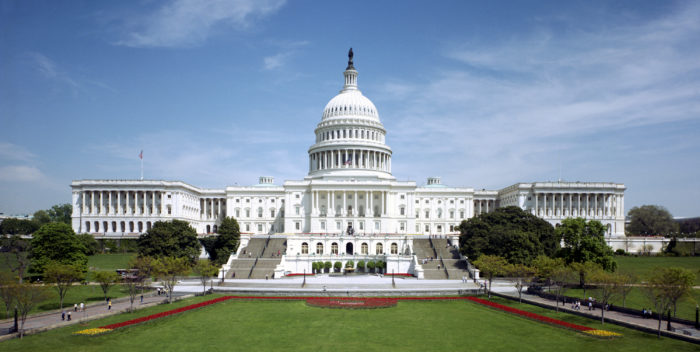How the Government Shutdown Affects College Students
The normal activity of the Capitol Building, home of the United States Congress, has been disrupted during the government shutdown. Image courtesy of the Architect of the Capitol.
by Benjamin Gordon
The United States Federal Government partially shut down Dec. 22 due to a disagreement on the 2019 budget between the Democrats and Republicans. The partial shutdown has disrupted everything from filing taxes to national parks and air travel. It has become the foremost issue among the media and politicians for the last month.
The issue can, in some regards, be traced back to the 2016 presidential race between Hillary Clinton and Donald Trump. The race came with a lot of drama, but none more iconic than Trump’s comments on building a wall between the U.S. and Mexico.
“I will build a great great wall on our southern border and I’ll have Mexico pay for that wall,” Trump said.
Mexico has not paid for the wall, and the cost has fallen on the United States taxpayer. It has been a point of contention between Republicans and Democrats ever since and has become an icon for both parties on immigration policy.
The Republicans controlled the House of Representatives and Senate in the 2017-2018 year and the budget passed relatively easily with increases in things like the military and border security. Democrats offered very little resistance. This year, things were different. The Democrats took the House in a victory of 235 to 200 according to the official House of Representatives website.
The primary conflict between the two parties is the funding for the federal government for the 2019 fiscal year. The budget should have been passed, but Trump vetoed anything without wall funding of at least $5.7 billion. The bill passed the Republican-controlled House, but had no support in the now Democrat-controlled Senate. This led to an impasse with both parties trying to bargain to pass the budget, but neither made headway. Trump eventually threatened to declare a national emergency to fund the wall, but then later backed down.
In an exchange where words became actions that bled outside the budget issues, Speaker of the House Nancy Pelosi stalled Trump’s State of the Union Address by denying him access to the House. In retaliation, Trump cancelled her trip to visit United States troops overseas. Pelosi will allow Trump to use the House for the State of the Union Address on Feb. 5 according to Fox News.
The standoff has put around 800,000 employees of all sorts of agencies out of work according to NBC News. Most employees were told not to go to work temporarily and some essential ones were forced to work without pay. Employees that were required to work without pay include the Coast Guard, ICE Officers, TSA Employees and more. Employees that were made to work will most likely be compensated for their work at a later date, but those who weren’t allowed to work won’t be compensated for their leave.
This conflict represents a climax in tensions between the two parties that has been building in the last two years. The division between the two parties is shown by a poll done by NBC News which says that 90 percent of Americans consider it a problem. History.com states that the rise in political tensions raises concerns among many historians who think that America is on a dangerous path where words could turn to violence.
The government is currently open for three weeks until Feb. 15 with Donald Trump accepting a bill to fund the government during that time. According to Public Finance International, the negotiations will begin right away between Democrats and Republicans, but it will be very difficult due to all the bad blood already incurred.
This applies to Concordia students as it will have an impact on college students. Main concerns include delays in FASFA filings and reduced federal funding for public universities according to USA Today. Many education grants and loans for higher education will be funded because of mandatory funding status and will not be affected by the shutdown.
Many are skeptical that this is truly the end of the ordeal. This was the longest shut down in U.S. history and according to CBS News around 70 percent of Americans opposed it. Public Finance International says that it cost the United States economy at least $6 billion.




